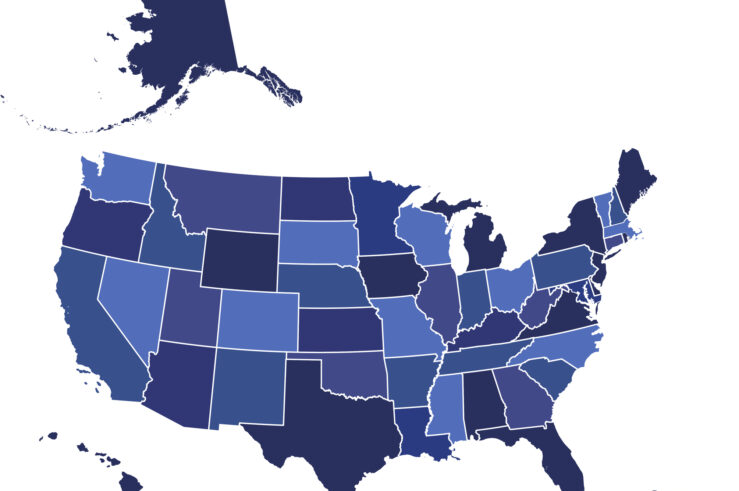Showing archive for: “DOJ”
Unpacking the Flawed 2021 Draft USPTO, NIST, & DOJ Policy Statement on Standard-Essential Patents (SEPs)
Responding to a new draft policy statement from the U.S. Patent & Trademark Office (USPTO), the National Institute of Standards and Technology (NIST), and the U.S. Department of Justice, Antitrust Division (DOJ) regarding remedies for infringement of standard-essential patents (SEPs), a group of 19 distinguished law, economics, and business scholars convened by the International Center ... Unpacking the Flawed 2021 Draft USPTO, NIST, & DOJ Policy Statement on Standard-Essential Patents (SEPs)
FTC-DOJ RFI on Merger Guidelines: The Agencies Should Proceed with Caution
The Jan. 18 Request for Information on Merger Enforcement (RFI)—issued jointly by the Federal Trade Commission (FTC) and the U.S. Justice Department (DOJ)—sets forth 91 sets of questions (subsumed under 15 headings) that provide ample opportunity for public comment on a large range of topics. Before chasing down individual analytic rabbit holes related to specific ... FTC-DOJ RFI on Merger Guidelines: The Agencies Should Proceed with Caution
Crusade Against ‘Big Meat’ Is Latest Example of Misguided Effort to Use Antitrust as Anti-Inflation Tool
As a new year dawns, the Biden administration remains fixated on illogical, counterproductive “big is bad” nostrums. Noted economist and former Clinton Treasury Secretary Larry Summers correctly stressed recently that using antitrust to fight inflation represents “science denial,” tweeting that: There is no basis in economics for expecting increases in demand to systematically larger price ... Crusade Against ‘Big Meat’ Is Latest Example of Misguided Effort to Use Antitrust as Anti-Inflation Tool
U.S. Senate Self-Preferencing Bill Offers Perfect Recipe for Regulatory Overreach
Even as delivery services work to ship all of those last-minute Christmas presents that consumers bought this season from digital platforms and other e-commerce sites, the U.S. House and Senate are contemplating Grinch-like legislation that looks to stop or limit how Big Tech companies can “self-preference” or “discriminate” on their platforms. A platform “self-preferences” when ... U.S. Senate Self-Preferencing Bill Offers Perfect Recipe for Regulatory Overreach
Oldie-but-Baddie: The Revival of an Antitrust ‘Efficiencies Offense’?
Recent antitrust forays on both sides of the Atlantic have unfortunate echoes of the oldie-but-baddie “efficiencies offense” that once plagued American and European merger analysis (and, more broadly, reflected a “big is bad” theory of antitrust). After a very short overview of the history of merger efficiencies analysis under American and European competition law, we ... Oldie-but-Baddie: The Revival of an Antitrust ‘Efficiencies Offense’?
The FTC’s Privacy Report Fails to Justify Asymmetric Regulation of ISPs
Others already have noted that the Federal Trade Commission’s (FTC) recently released 6(b) report on the privacy practices of Internet service providers (ISPs) fails to comprehend that widespread adoption of privacy-enabling technology—in particular, Hypertext Transfer Protocol Secure (HTTPS) and DNS over HTTPS (DoH), but also the use of virtual private networks (VPNs)—largely precludes ISPs from ... The FTC’s Privacy Report Fails to Justify Asymmetric Regulation of ISPs
What is the Appropriate Role for State Antitrust Enforcement?
In the U.S. system of dual federal and state sovereigns, a normative analysis reveals principles that could guide state antitrust-enforcement priorities, to promote complementarity in federal and state antitrust policy, and thereby advance consumer welfare. Discussion Positive analysis reveals that state antitrust enforcement is a firmly entrenched feature of American antitrust policy. The U.S. Supreme ... What is the Appropriate Role for State Antitrust Enforcement?
FTC Moves Closer Toward Ex Ante Merger Regulation
The Federal Trade Commission (FTC) has taken another step away from case-specific evaluation of proposed mergers and toward an ex ante regulatory approach in its Oct. 25 “Statement of the Commission on Use of Prior Approval Provisions in Merger Orders.” Though not unexpected, this unfortunate initiative once again manifests the current FTC leadership’s disdain for ... FTC Moves Closer Toward Ex Ante Merger Regulation
‘New Madison Approach’ Should Be Retained to Promote American Innovation
The leading contribution to sound competition policy made by former Assistant U.S. Attorney General Makan Delrahim was his enunciation of the “New Madison Approach” to patent-antitrust enforcement—and, in particular, to the antitrust treatment of standard essential patent licensing (see, for example, here, here, and here). In short (citations omitted): The New Madison Approach (“NMA”) advanced ... ‘New Madison Approach’ Should Be Retained to Promote American Innovation
5 Thoughts on the Senate’s Proposed Platform Self-Preferencing Ban
A bipartisan group of senators unveiled legislation today that would dramatically curtail the ability of online platforms to “self-preference” their own services—for example, when Apple pre-installs its own Weather or Podcasts apps on the iPhone, giving it an advantage that independent apps don’t have. The measure accompanies a House bill that included similar provisions, with ... 5 Thoughts on the Senate’s Proposed Platform Self-Preferencing Ban
Broad-Based FTC Data-Privacy and Security Rulemaking Would Flunk a Cost-Benefit Test
A debate has broken out among the four sitting members of the Federal Trade Commission (FTC) in connection with the recently submitted FTC Report to Congress on Privacy and Security. Chair Lina Khan argues that the commission “must explore using its rulemaking tools to codify baseline protections,” while Commissioner Rebecca Kelly Slaughter has urged the ... Broad-Based FTC Data-Privacy and Security Rulemaking Would Flunk a Cost-Benefit Test
Why There Needs to Be More, not Less, Consolidation in Video Streaming
Slow and inadequate oversight risks the streaming market going the same route as cable—where consumers have little power, few options, and where consolidation and concentration reign supreme. A number of threats to competition are clear, as discussed in this section, including: (1) market power issues surrounding content and (2) the role of platforms in “gatekeeping” ... Why There Needs to Be More, not Less, Consolidation in Video Streaming












